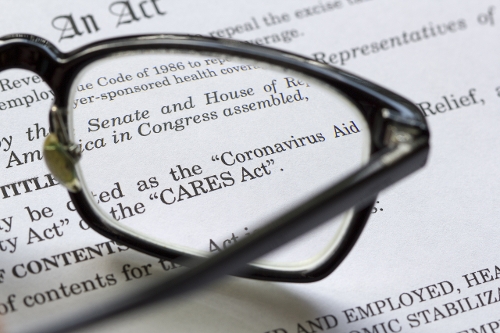
June 16, 2020
The Coronavirus Aid, Relief, and Economic Security (CARES) Act provides relief to taxpayers by modifying the rules for distributions and loans from certain tax-advantaged retirement accounts, which include 401(k)s, 403(b)s, 457s, and traditional IRAs.
Withdrawals
The CARES Act waives the 10% early withdrawal penalty that normally applies to distributions taken from retirement accounts before reaching age 59 1/2. The penalty is waived for withdrawals up to $100,000 from qualified retirement plans for coronavirus-related reasons. A qualified coronavirus-related distribution is defined as made during the 2020 calendar year due to:
- You, your spouse, or your dependent having been diagnosed with COVID-19 via CDC-approved test.
- Personal adverse financial consequences as a result of a layoff, furlough, reduction in hours, or inability to work due to COVID-19, or lack of childcare because of COVID-19, or the closure or reduced hours of a business you own and operate.
Although the distribution will not be subject to the 10% tax penalty or the 20% mandatory withholding on employer plans, the distribution will be included in your income and will be subject to income tax. The distribution will be included in income over a 3 year period, potentially reducing the total tax paid on the distribution. You may elect to pay the full amount of tax on the distribution in 2020. This may be advantageous if your 2020 income is less than normal.
You can avoid paying tax on the withdrawal by recontributing the withdrawn amount to a qualified retirement plan. The recontribution can be made without regard to the normal annual contribution limits or the normal 60-day rollover period. The funds must be redeposited to a retirement account within three years. Any tax previously paid on the withdrawal during the three-year period can be refunded by filing an amended tax return.
Loans
The CARES Act increases the maximum loan amount from qualified employer retirement plans to the lesser of $100,000 or 100% of your vested balance in the retirement account for qualified coronavirus reasons. This increase applies to loans made between March 27, 2020 (CARES Act enactment date) and September 22, 2020.
In addition, if a qualified individual has a loan repayment due date after March 27, 2020 and before December 31, 2020 on an outstanding loan, the payment due date is delayed for one year. Interest will accrue during the delayed repayment period.
Qualifying coronavirus related reasons for loan purposes are the same as listed above for withdrawals.
Required Minimum Distributions
The CARES Act waives 2020 required minimum distributions from defined contribution plans and IRAs for retirees. All required minimum distributions are waived regardless of whether you have been impacted by COVID 19.
Be sure to check with your plan sponsor or administrator for changes made to your retirement plan due to the CARES Act. Plans are not required to adopt the changes nor are they required to offer loans.
If you would like more information on modifications to the rules on the use and distribution of retirement funds, please call our office. We are here to help you.
